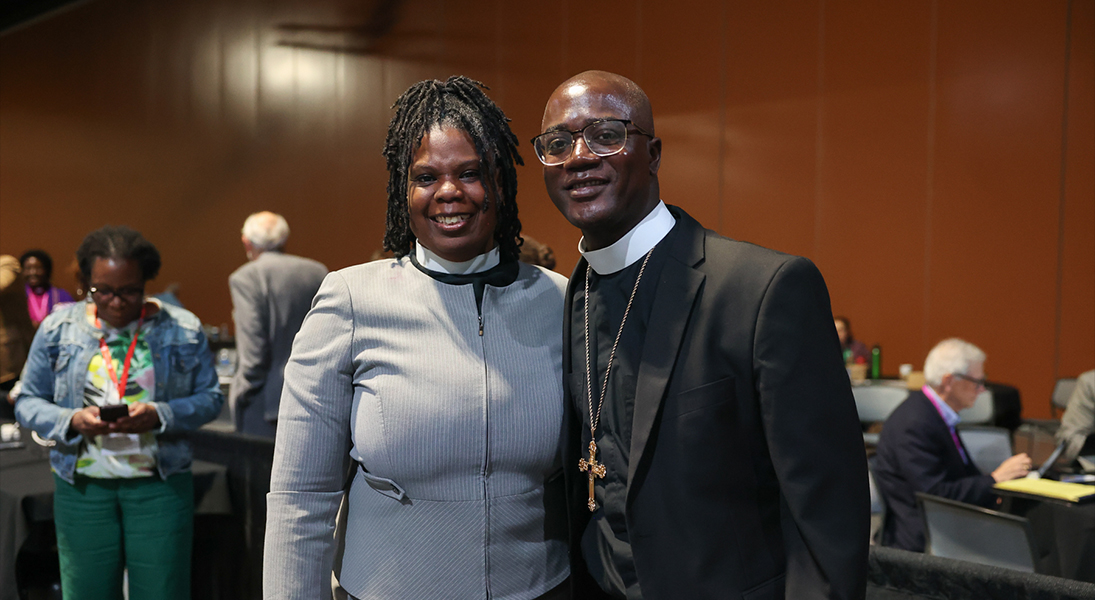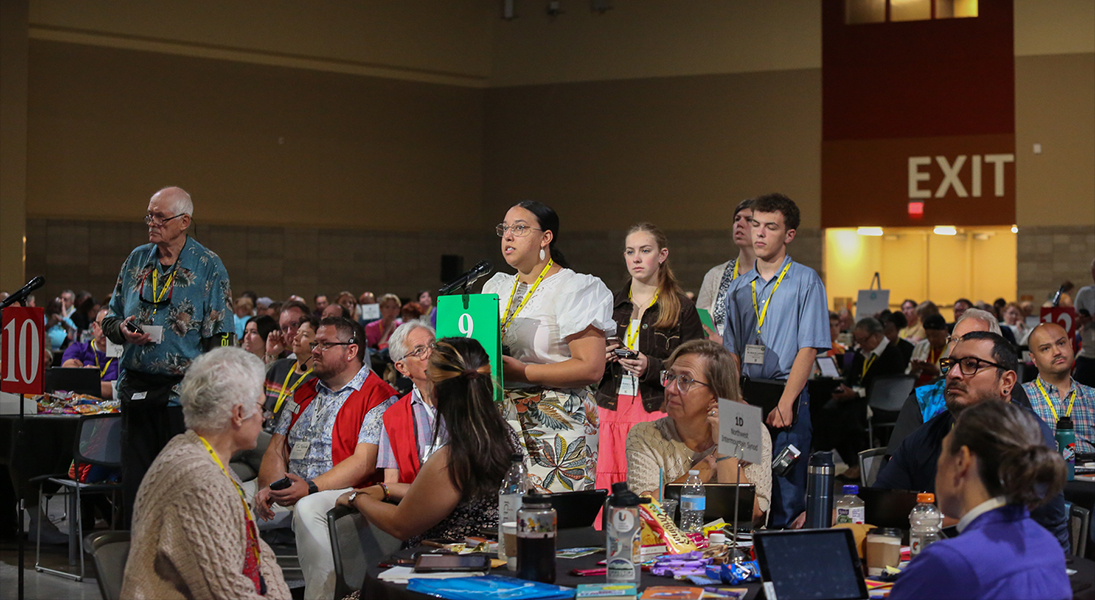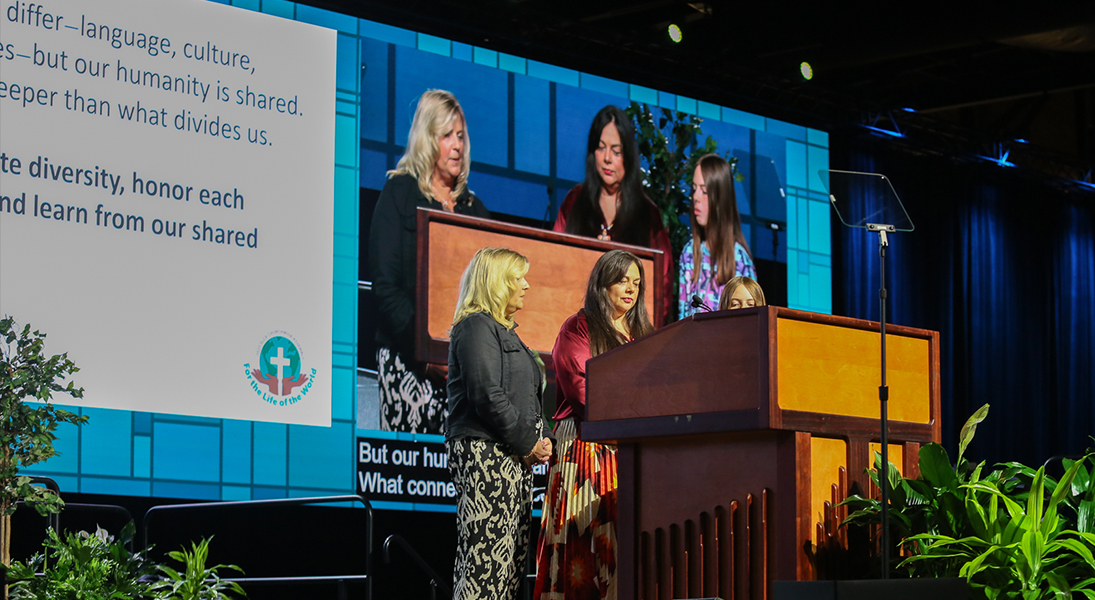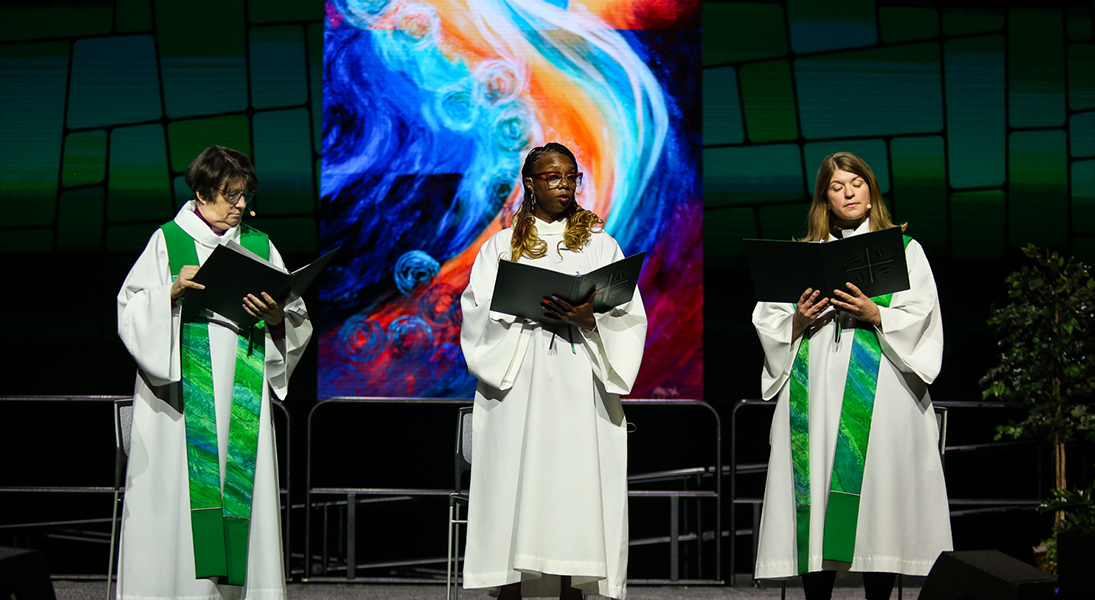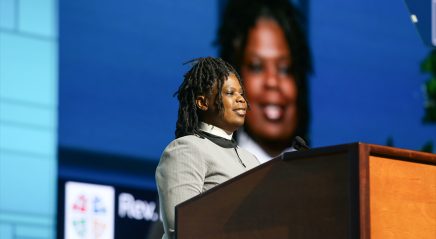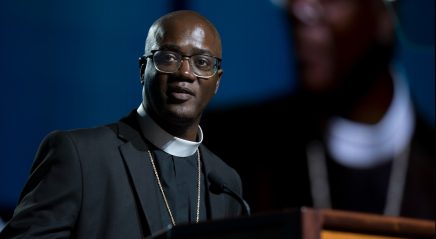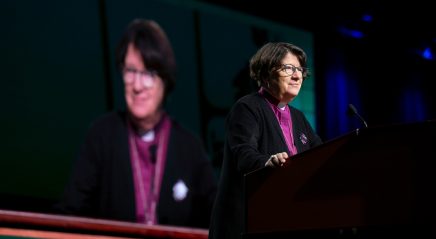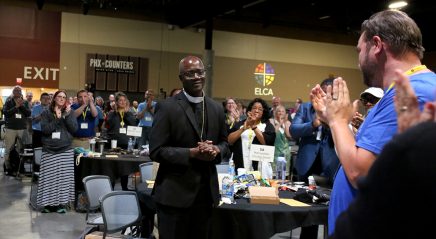On the fifth day of the 2025 ELCA Churchwide Assembly, Lucille “CeCee” Mills, assistant to the bishop in the North Carolina Synod, was elected secretary of the ELCA. She will be installed Saturday morning.
Mills was elected on the fifth ballot with 404 votes. Matthew Riegel, bishop of the West Virginia-Western Maryland Synod, received 378 votes. There were 782 ballots cast, with 392 votes needed for an election. Mills will be the first Black secretary of the ELCA.
Prior to the third ballot for secretary, the seven nominees who received the most votes on the previous ballot were invited to speak. The three nominees who received the most votes on the third ballot (Mills: 229, Riegel: 182, Tatum: 178) then answered preidentified questions.
In her answers, Mills described the church’s constitution as “something that magnifies all of the things that we understand ourselves to be as Lutherans in the ELCA. … Making something a document that is living beyond the people who are writing it in the moment is really important.”
On the fourth ballot, 471 votes were needed to elect. The results: Riegel, 316; Mills, 311; and Tatum, 157.
The social statement “Faith and Civic Life: Seeking the Well-being of All” and its implementing resolutions were then considered. All amendments, which were based on the committee’s recommendations from an ad hoc task force, were approved.
The assembly adopted (762-16) the social statement as amended. During consideration of its implementing resolutions, all amendments were adopted.
Plenary 10
The assembly considered edits made by an appointed task force to the “Human Sexuality: Gift and Trust” social statement. All amendments were adopted. A motion to amend one of the amendments, removing the phrase “to be a covenant between a man and a woman” from the language “The Christian tradition has historically defined marriage to be a covenant between a man and a woman, as reflected in the language of Genesis,” was also adopted (552-211).
The assembly then approved (742-46) the social statement as amended.
The plenary returned to consideration of amendments to the church’s Constitutions, Bylaws, and Continuing Resolutions. (The amendments can be found in Section IX, the Report of the Reference and Counsel Committee of the Bulletin of Reports in the Churchwide Assembly Guide.)
The following was approved:
- Motion D (530-236): Amending bylaw 5.01.E19. to increase the percentage goal of youth and young adult voting membership of Churchwide Assembly, Church Council, and churchwide boards and committees from 10 to 20%. The committee also recommends directing the Church Council to develop and present a plan for implementation of this continuing resolution at its April 2026 meeting that also addresses barriers to youth and young adult participation.
The assembly also returned to consideration of an amendment to bylaw 22.11.b, Motion C in the committee’s report. The amendment would remove language that was to add the phrase “or a subsequent two-thirds vote of the members of the Church Council taken within 12 months of adoption by the Churchwide Assembly.” The assembly had stricken the language July 31 before a voting member had proposed new language.
The assembly referred (517-247) Motion C to the Office of the Secretary for further study.
The Reference and Counsel Committee’s proposed amendment to bylaw 7.31.02.a.8 was also considered. The committee recommended replacing the language “[embracing and welcoming] racially and ethnically diverse populations” with “[embracing and welcoming] members of historically underrepresented groups.”
But a substitution motion to amend the language by striking the phrase in question and replacing it with “unifying and reconciling the diverse body of Christ into which we are baptized, giving special honor to members of historically underrepresented groups” was voted to become the main motion (390-312). The amendment of that proposed language was defeated (703-52), meaning the language in question would stay the same as it had been prior to the Reference and Counsel Committee’s proposed amendment.
The day closed with a worship service of evening prayer, which included a litany of confession and repentance for patriarchy and sexism, as presented on day one.




